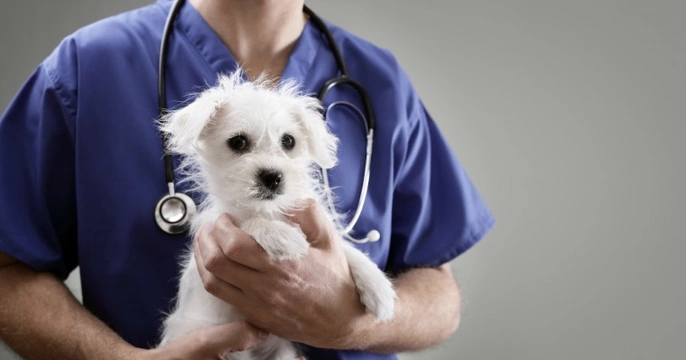
New Covid 19 “Stay at Home” measures: Can my dog still go to the vet?
(24th March 2020)
On 23rd March 2020, the Prime Minister announced a range of new government-mandated restrictions to help to slow the spread of the Covid 19 coronavirus epidemic in the UK.
These measures included instructions to stay at home, only go out to meet medical needs, to get essential shopping, or to perform one bout of daily exercise activity, or for travel to and from work where this cannot be avoided.
All non-essential shops (such as those selling electrical gadgets, and clothes shops) have been closed as well to support these efforts.
Whilst this does at first sound very clear, there are an awful lot of grey areas too, and confusion among many people regarding what they can and cannot do.
UK mobile networks also sent out a government message this morning telling people simply to “stay at home” in support of this; but for many, this generated more confusion, as some people hadn’t seen the news on the restrictions the night before and others thought it superseded it, meaning that you could not leave you home at all.
Many dog owners are confused about how all of this will affect them and their dogs if their dogs need to see the vet during this time, as seeing the vet doesn’t fall neatly within any of the categories stated as reasons to go out… Such as for exercise, travel to work, essential shopping or medical needs; and there was no explanation given as to whether or not the latter two categories might apply to veterinary care for dogs!
So, can your dog still go to the vet since the new Covid 19 coronavirus “stay at home” measures have been instigated? Read on to find out.
Are vets still open?
Veterinary clinics remain open and are not one of the types of businesses that the government has asked or mandated closure for, the latter of which has only occurred for shops and services considered to be non-essential.
Aside from when closures occur due to other reasons (potentially, short staffing levels or clinics combining forces to offer centralised care from one clinic and close smaller or outlying satellite clinics in support of this) vets in the UK are open and available for pet owners that need them.
If a business is open, you can use it
If a business (like a vet, or anything else) has remained open, this is because they are permitted to due to the nature of what they do or offer. This means that you can still go to the vet during stat at home restrictions, BUT you must not just turn up (which is the same as when things are normal) and how you are served – and even if you are asked to attend at all – may be different.
Only go to the vet if essential
As a result of the government’s latest advice to veterinary clinics, clinics should only offer provision of essential and emergency care, and must take all possible steps to reduce contact between clients and staff, which means reducing face-to-face visits where possible.
This means that for routine enquiries, non-urgent care, and preventative care, you will probably not be permitted to go to the vet.
Most vets are being very creative to continue to offer what services they can without unnecessary personal contact, which means that they might look at posting you routine products like flea and worming treatments you’d usually pick up in person, holding phone triage and video consults, and potentially seeing pets that need to be seen in clinic without their owners in the room.
Always contact your vet first
It is your vet who makes the ultimate decision if your pet needs to be seen, how this might work, and what alternative steps they might take or offer to help to prevent in-person contact. This might not seem ideal and might not be what you want, but whilst the health of your pet is hugely important to you and something that veterinary staff feel very strongly about as well, we are still in the midst of a human pandemic and the health and welfare of people and slowing the spread of Covid 19 coronavirus is the priority.
Your vet might tell you NOT to come to the clinic
If you are asked to attend the clinic, prepare to follow instructions and expect things to be different to normal. You may be asked to wait in the car while your pet is treated inside without you, or given very detailed instructions about hygiene and infection control if you are asked to come into the clinic, including washing your hands and generally following instructions, such as not to touch things unnecessarily.
Also, expect some questions on your own health before an appointment is made, the same as you might find your doctor asks if you call them, to help to avoid contact with people who may be displaying Covid 19 symptoms.
Also, bear in mind that you might be told not to come to the clinic, and offered advice, a remote consult, or an alternative option instead. For some types of care deemed non-urgent, routine, and not directly and immediately necessary for your pet’s health, you may not be seen; this might be an inconvenience in the short term, but as ever, it is important to view the big picture and remember that we all have to play our part in protecting human health too.



